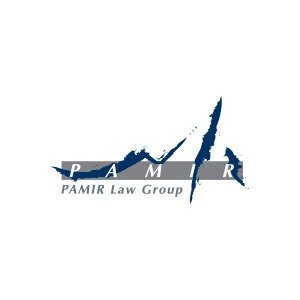Best Project Finance Lawyers in Taiwan
Share your needs with us, get contacted by law firms.
Free. Takes 2 min.
Or refine your search by selecting a city:
List of the best lawyers in Taiwan
About Project Finance Law in Taiwan
Project finance in Taiwan refers to the legal and financial structuring of large-scale infrastructure, energy, and industrial projects where repayment relies primarily on the project's cash flow, not the sponsor's assets. Typical project finance transactions may involve public-private partnerships (PPPs), independent power producer (IPP) projects, and transport infrastructure. Taiwan’s legal environment for project finance has evolved alongside its growing economic landscape, particularly in the renewable energy and transportation sectors, promoting robust regulatory frameworks and investment opportunities.
Why You May Need a Lawyer
Project finance transactions are complex, involving various parties, substantial capital investment, and intricate legal frameworks. You may require legal assistance in several common situations:
- Drafting and negotiating project finance agreements
- Understanding statutory and regulatory requirements specific to Taiwan
- Managing risks and compliance issues
- Securing land use rights, permits, and government approvals
- Resolving disputes between stakeholders
- Handling cross-border investments and foreign exchange regulations
- Structuring project companies and joint ventures
- Advising on environmental and social impact compliance
Local Laws Overview
Project finance in Taiwan is shaped by a blend of civil law statutes, regulatory frameworks, and international best practices. Key aspects include:
- Concession Laws: For PPP or BOT (Build-Operate-Transfer) projects, the Act for Promotion of Private Participation in Infrastructure Projects governs the participatory process, bid rules, and contractual obligations.
- Corporate and Security Law: Setting up special purpose vehicles (SPVs) and giving security interests are essential for project finance arrangements, invoking the Company Act, Civil Code, and Movable Property Secured Transactions Act.
- Foreign Investment Regulations: The Investment Commission under the Ministry of Economic Affairs administers foreign participation, observing the Foreign Investment Approval regulations.
- Land and Environmental Law: Land Act, Urban Planning Law, and Environmental Impact Assessment Act are relevant to obtaining and maintaining site and operational approvals.
- Energy and Infrastructure Laws: Special sectoral statutes such as the Electricity Act and Renewable Energy Development Act play crucial roles for related projects.
- Banking and Finance Laws: The Banking Act and Financial Holding Company Act regulate lending activities, security documentation, and offshore financing.
Frequently Asked Questions
What is project finance and how does it differ from traditional corporate finance?
Project finance centers on funding large projects where the project's own revenue and assets serve as the primary source of repayment and collateral, while traditional corporate finance relies on the overall creditworthiness of the company as a whole.
What are the main industries in Taiwan that use project finance?
Project finance is commonly used in energy (including renewables), transportation (ports, highways, railways), water treatment, and major public works infrastructure.
Can foreigners invest or participate in project finance projects in Taiwan?
Yes, foreign investors can participate, though they must comply with relevant laws such as the Foreign Investment Approval process operated by the Ministry of Economic Affairs.
What are the common structures for project finance deals in Taiwan?
Most deals use a special purpose vehicle (SPV) to isolate financial risk and ensure financing is dedicated to the project. Joint ventures and BOT models are also popular.
Is government approval needed for project finance projects?
Yes, most major infrastructure or energy projects require government approvals, concessions, or permits, especially under BOT or PPP schemes.
What are typical risks associated with project finance in Taiwan?
Common risks include regulatory changes, land acquisition, construction delays, permitting issues, currency fluctuation for cross-border deals, and counterparty risks.
How is security or collateral structured in Taiwanese project financing?
Security interests are usually granted over project assets, contracts, receivables, and share pledges in the project company, often governed by the Movable Property Secured Transactions Act.
Which government agencies oversee project finance matters?
Key agencies include the Ministry of Economic Affairs, Ministry of Transportation and Communications, Environmental Protection Administration, and sector-specific regulators.
What due diligence is required for project finance?
Legal due diligence generally includes reviewing project contracts, permits, land rights, environmental compliance, corporate structure, and risk allocation.
What are the tax implications for project finance transactions in Taiwan?
Tax considerations include value-added tax, income tax, stamp duties, withholding tax on foreign investors, and other project-specific fiscal obligations as per the Income Tax Act and other tax rules.
Additional Resources
For further information and support on project finance in Taiwan, consider reaching out to:
- Ministry of Economic Affairs (MOEA): Responsible for approving and overseeing project investments and foreign participation.
- Investment Commission: Handles foreign direct investment applications and approvals.
- Public Construction Commission: Manages government-contracted public works and infrastructure projects.
- Taiwan Bar Association: Can connect you with qualified project finance lawyers.
- Sector-specific Regulatory Bodies: Such as the Bureau of Energy or Environmental Protection Administration for projects in energy and environmental sectors.
Next Steps
If you are considering involvement in a project finance transaction or facing a related legal challenge in Taiwan, follow these steps:
- Define the type and scale of your project and identify major stakeholders.
- Gather relevant documents: project descriptions, financial plans, permits, and existing contracts.
- Consult with legal experts specialized in project finance to assess compliance, risk, and structuring options.
- Engage with government bodies early to clarify approval processes and regulatory expectations.
- Proceed to formalize contractual relationships and project structures with legal guidance, ensuring all agreements are clear and enforceable under Taiwanese law.
- Regularly review project progress with your legal counsel to address ongoing compliance, risk management, and any disputes or challenges that arise.
Legal counsel is essential to navigate the regulatory environment, ensure your rights are protected, and help your project achieve its financial and operational goals. Early engagement with a qualified project finance lawyer will streamline your project and help mitigate risks.
Lawzana helps you find the best lawyers and law firms in Taiwan through a curated and pre-screened list of qualified legal professionals. Our platform offers rankings and detailed profiles of attorneys and law firms, allowing you to compare based on practice areas, including Project Finance, experience, and client feedback.
Each profile includes a description of the firm's areas of practice, client reviews, team members and partners, year of establishment, spoken languages, office locations, contact information, social media presence, and any published articles or resources. Most firms on our platform speak English and are experienced in both local and international legal matters.
Get a quote from top-rated law firms in Taiwan — quickly, securely, and without unnecessary hassle.
Disclaimer:
The information provided on this page is for general informational purposes only and does not constitute legal advice. While we strive to ensure the accuracy and relevance of the content, legal information may change over time, and interpretations of the law can vary. You should always consult with a qualified legal professional for advice specific to your situation.
We disclaim all liability for actions taken or not taken based on the content of this page. If you believe any information is incorrect or outdated, please contact us, and we will review and update it where appropriate.
Browse project finance law firms by city in Taiwan
Refine your search by selecting a city.
















